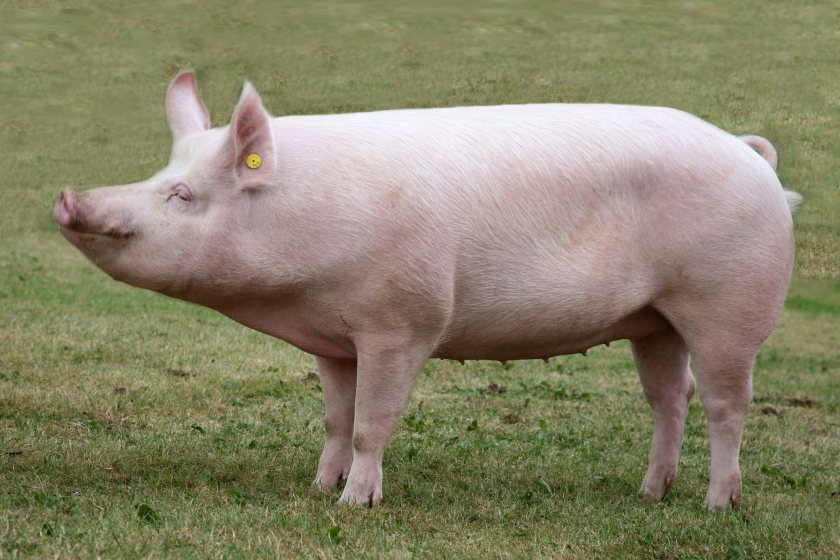
Campaigners have raised concerns over the future of Large White pigs, after the rare native breed suffered a further decline in numbers in 2021.
The new Rare Breeds Survival Trust (RBST) Watchlist adds the formerly prolific Large White Pig to its highest priority category.
The breed, known as ‘The Yorkshire Pig’, enjoyed popularity in the 1950s but its numbers declined dramatically due to a trend for crossing Large Whites with Landrace pigs instead of pedigree breeding.
The Large White has had a significant influence in the commercial pig industry and the development of the hybrid pig.
More recently the breed’s effective population size has fallen from more than 900 in the year 2000, to just 125 today.
Effective population size indicates the genetic diversity within the breed, by accounting for the total number of animals in a population and the relative numbers of sires and dams.
RBST, a national charity working to save and safeguard the future of rare and native livestock and equine breeds, said some of native breeds were in "pretty dire straits right now".
Its chief executive, Christopher Price said: “The pig industry has had an awful year and the situation for native pigs is very concerning, with the decline in Large Whites seven of our 11 native pig breeds are now priority breeds"
In sheep, there has been a significant decline in births of one of the UK’s oldest sheep breeds the Norfolk Horn, a trend that is a cause for concern too.
One of the oldest of the UK’s sheep breeds, the Norfolk Horn played a major part in the history and economy of East Anglia, with its fleeces the basis of the region’s famous worsted industry.
The breed declined in popularity and in the 1890s there was just one flock left. In the 1960s there were just a handful left.
Through efforts of individual keepers, the Norfolk Horn Breeders Group and RBST, numbers are now healthier, but there was a big decline this year in numbers.
Mr Price added: "If we lose these breeds, we lose not only an irreplaceable piece of our heritage, but also their unique genetic value and their crucial contributions to a future for farming where food production and the environment go hand in hand."
